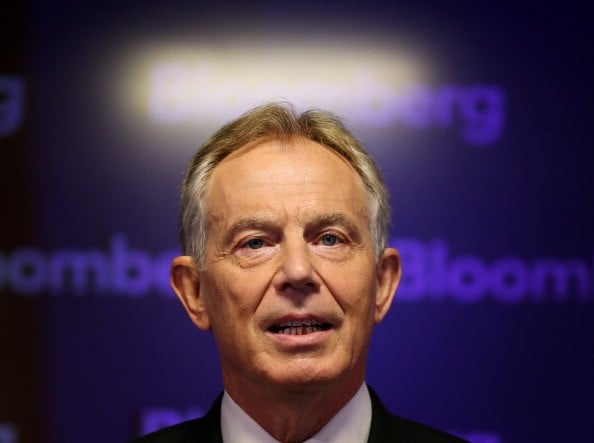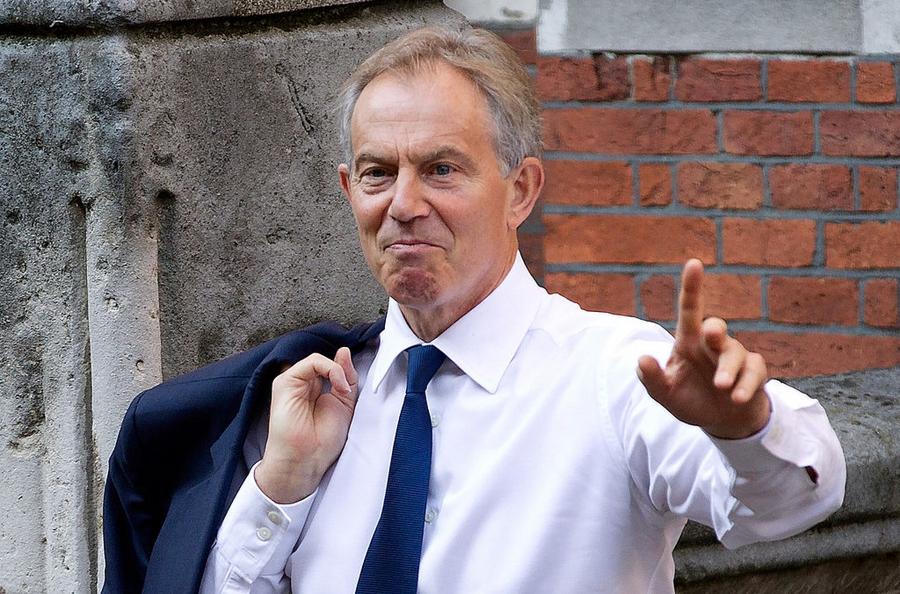Tony Blair at a Glance
- Categories: Politicians, Politicians > Presidents
- Net Worth: $60 Million
- Birthdate: May 6, 1953 (71 years old)
- Birthplace: Edinburgh
- Gender: Male
- Profession: Politician, Lawyer, Diplomat, Statesman
- Nationality: United Kingdom
- Height: 6 ft (1.829 m)
What is Tony Blair’s Net Worth? A Look at the Former Prime Minister’s Wealth and Career
Introduction: The Rise and Career of Tony Blair
Tony Blair is a prominent figure in British and global politics, known for his decade-long tenure as the Prime Minister of the United Kingdom. His time in office, from 1997 to 2007, was marked by significant reforms, controversial foreign policy decisions, and a notable shift in the landscape of the Labour Party. This article delves into the life, career, and financial standing of Tony Blair, providing a comprehensive overview of his achievements, controversies, and lasting impact.
Early Life and Education
Anthony Charles Lynton Blair was born on May 6, 1953, in Edinburgh, Scotland. He was the second son of Hazel and Leo Blair. His father, Leo, was a law lecturer, and the family moved to Adelaide, South Australia, in 1954, where Leo taught law at the University of Adelaide. The family returned to the United Kingdom in 1958, settling in Durham, England. Blair attended the Chorister School from 1961 to 1966 and later the prestigious Fettes College boarding school in Edinburgh. After completing his education, he spent a gap year in London, exploring his interests in rock music before studying jurisprudence at St John’s College, Oxford University. During his time at Oxford, he played guitar and sang in a rock band called Ugly Rumours, showcasing his diverse interests. He graduated in 1975 and subsequently became a barrister.
Political Beginnings: Entering the Labour Party
Blair’s foray into politics began shortly after his graduation from Oxford. He joined the Labour Party and quickly became involved in local politics in Hackney South and Shoreditch. In 1982, he ran for the Hackney council elections. That same year, he was selected as the Labour Party candidate for the Conservative seat of Beaconsfield, ultimately losing the election. His political career gained momentum in 1983 when he was elected as the Member of Parliament (MP) for the Trimdon branch of Sedgefield. His rise within the party was rapid, and he received his first front-bench appointment in 1984 as an assistant Treasury spokesperson. This early success set the stage for his future leadership roles.
Leader of the Opposition: Shaping the Future
Blair’s political influence continued to grow. He ran for election to the Shadow Cabinet in 1987. In 1992, following the resignation of Neil Kinnock, Blair became the shadow home secretary. A pivotal moment in his career came in 1994 when, after the death of John Smith, he successfully contested the Labour Party leadership, defeating Margaret Beckett and John Prescott. As Leader of the Opposition, Blair initiated significant changes within the Labour Party. One of his most notable moves was abolishing Clause IV, which formally committed the party to economic nationalization. He championed a more market-friendly approach, embraced the European Union, and worked to diminish trade union influence. These shifts helped redefine the Labour Party, paving the way for a landslide victory in the 1997 general election.

Peter Macdiarmid / Getty Images
Prime Minister: A Decade of Transformation
On May 2, 1997, Tony Blair led the Labour Party to a historic victory, securing the largest landslide general election win in the party’s history. At the age of 42, Blair became the youngest Prime Minister since 1812. He achieved further victories in 2001 and 2005, making him the Labour Party’s longest-serving prime minister. During his time in office, Blair’s government implemented several significant reforms and policies:
- Constitutional Reforms: Blair’s government removed most hereditary peers from the House of Lords, established the UK’s Supreme Court, and reformed the office of Lord Chancellor.
- Devolution: Referendums paved the way for the establishment of the Scottish Parliament and Welsh Assembly in 1999, signifying a move towards devolution.
- Public Spending: Blair oversaw substantial increases in public spending, particularly in education and healthcare, aiming to improve essential services.
- Social Policies: His government introduced progressive social policies, including the National Minimum Wage Act (1998), the Human Rights Act (1998), and the Freedom of Information Act (2000).
- Foreign Policy: Blair’s foreign policy included interventions in Kosovo (1999) and Sierra Leone (2000), which were generally considered successful. However, his support for the War on Terror, alongside US President George W. Bush, and the invasion of Iraq drew significant criticism and controversy. The claim that Saddam Hussein possessed weapons of mass destruction proved to be false, leading to lasting debates about the war.
- Anti-Terror Legislation: Following the 7/7 bombings in London in 2005, Blair introduced controversial anti-terror legislation.

(Photo by Dan Kitwood/Getty Images)
Post-Prime Ministerial Ventures: Business and Global Roles
Tony Blair resigned as Prime Minister in June 2007 after ten years in office. Following his resignation, he took on several roles in both the public and private sectors:
- Middle East Envoy: He was appointed as the Middle East envoy for the United Nations, the European Union, Russia, and the United States. In this role, he worked on peace plans and Palestinian rights, resigning in 2015.
- Private Sector: Blair joined the private sector, including investment bank JPMorgan Chase as a senior advisor and Zurich Financial Services, advising on climate change.
- Tony Blair Associates: In 2008, he established Tony Blair Associates, providing strategic advice on politics and economics. This venture faced criticism for potential conflicts of interest.
- Philanthropic Efforts: He launched the Tony Blair Sports Foundation to encourage childhood participation in sports and the Tony Blair Faith Foundation to promote understanding between people of different religious backgrounds and to work toward ending global conflict and poverty.
- Tony Blair Institute: In 2016, he launched the Tony Blair Institute for Global Change to champion global change in organizations and governments.
Personal Life: Family and Residences
In 1980, Tony Blair married Cherie Booth. They have four children: Euan, Nicholas, Leo, and Kathryn. The Blair family owns multiple residences, including their primary home in Connaught Square.
Tony Blair’s Net Worth Today
Tony Blair’s net worth is estimated to be approximately $60 million. This wealth has been accumulated through his political career, his consulting work, and his various business ventures. His income streams include earnings from Tony Blair Associates, speaking engagements, advisory roles, and investments.
Legacy and Influence
Tony Blair’s legacy is complex and debated. His achievements during his premiership, such as the constitutional reforms and social policies, are often contrasted with the controversies surrounding his foreign policy decisions, particularly the Iraq War. His influence on the Labour Party and British politics, however, remains undeniable. He reshaped the party, moved it towards the center, and led it to a historic electoral victory. Whether viewed positively or negatively, Blair’s time in office left a lasting impact on the United Kingdom and the broader world.
Conclusion: A Complex and Influential Figure
Tony Blair’s career encapsulates a pivotal period in British history. From his rise through the Labour Party to his decade-long tenure as Prime Minister and his post-political endeavors, Blair has remained a significant figure. His legacy is marked by both achievements and controversies, making him a subject of continuous debate and analysis. His impact on British politics, social policy, and foreign relations continues to resonate today, solidifying his place as a complex and influential leader.

